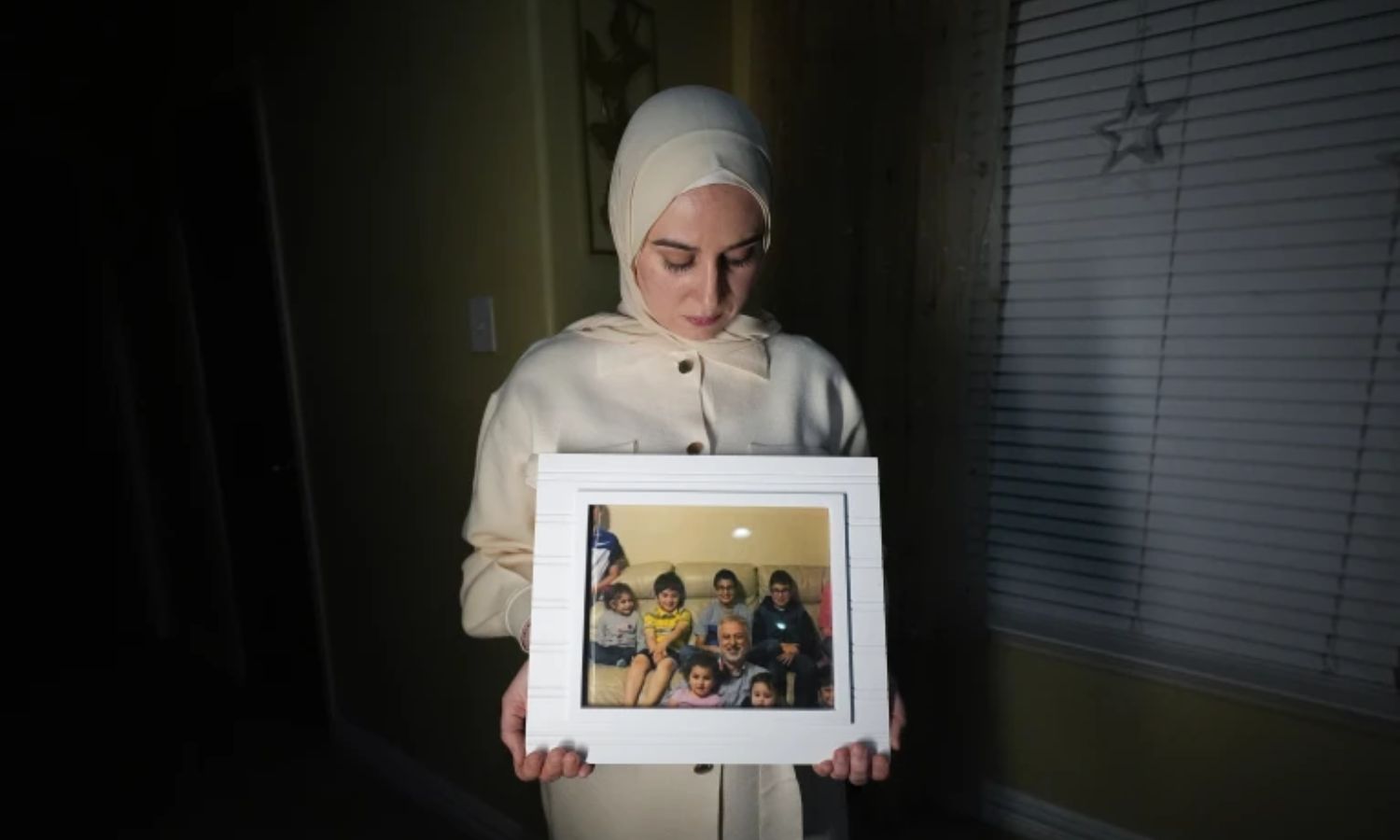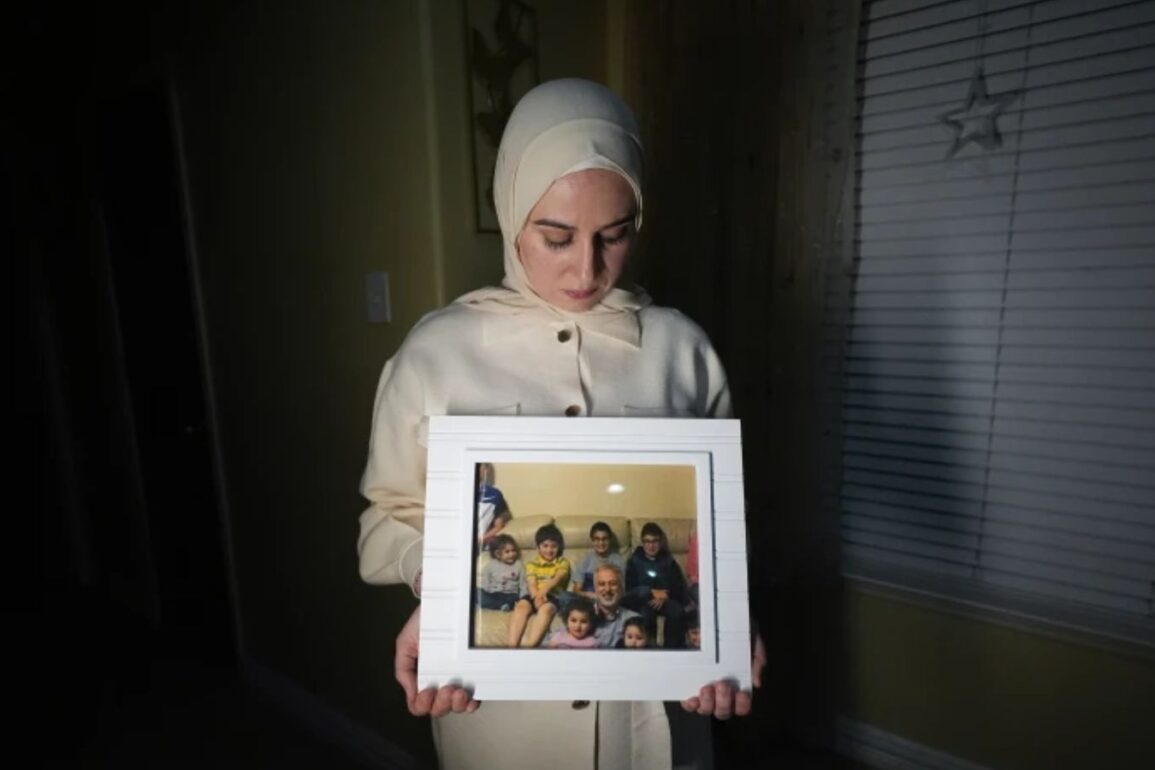
Enab Baladi – Nour al-Haj
It took seven years to uncover the fate of the Syrian-American doctor Majd Kam Almaz since his disappearance in 2017 after being detained at a Syrian regime checkpoint in the Mezzeh area of Damascus during his visit to Syria.
According to the American newspaper The New York Times on May 18, it has been confirmed that Dr. Kam Almaz died, amid speculations that he was killed under torture years ago.
On the other hand, the American administration has remained silent on this issue, amidst calls for political and legal actions, such as launching a criminal investigation and breaking the silence to achieve justice.
Eliminating doubt
The doctor’s daughter Mariam Kam Almaz stated that after years of suffering between hope and fear about her father’s fate and numerous appeals to the American administration to intervene and help uncover his fate, senior American officials, including members of the FBI, informed the family in a meeting in Washington just days ago about his death, based on what they described as highly credible and accurate intelligence.
According to The New York Times, Mariam Kam Almaz refused to specify what exactly the officials provided, but after pressing them for over two hours and what they presented from the investigations, her doubts were dispelled, and she and her family were convinced that Majd Kam Almaz had died and that “hope is lost.”
Syria as a “black hole”
In an interview with the Associated Press, the youngest daughter of Dr. Majd Kam Almaz confirmed that the Syrian regime had denied holding him all these years. There was no trial, no case, and nothing against him.
Syria is a black hole, they literally kidnapped and hid my father, which is totally unacceptable.
Mariam Kam Almaz, Daughter of Dr. Majd Kam Almaz
Years ago, FBI officials informed Dr. Kam Almaz’s family of information and documents suggesting he had died weeks after his arrest in 2017, at the hands of a Syrian regime checkpoint.
The document written in Arabic, according to Mariam, indicated that her father was taken to the hospital due to heart failure, but doctors failed to revive him, and he died in June 2017, suggesting that he possibly died due to torture and lack of medical care.
The family refused to accept this information then, as despite the doctor’s diabetes and needing regular treatment, his overall health was good, and he had no heart symptoms or any other diseases, making his death barely four months after his arrest seem unreasonable. One of his daughters added, “How could he suffer a heart attack and die unless they did something to him?”
Afterward, American officials continued to follow up on the case, and the Kam Almaz family tried to obtain information through intermediaries in the Syrian regime, via the Czech ambassador at the time, as the United States had cut official diplomatic relations with Syria.
They received information back then strongly suspecting that Majd Kam Almaz was imprisoned, at least for some time while in Syria, in a facility at the Mezzeh airbase in Damascus, under the control of General Jamil Hassan, known for its harsh conditions and brutal torture faced by detainees, most of whom had no clear charges or trials.
Where does the American administration stand?
Many American voices have called on President Joe Biden’s administration to break its silence, denounce the killing of Dr. Majd Kam Almaz after his kidnapping in 2017, and launch a criminal investigation into his death, including Republican congressman Joe Wilson, who directed a letter to President Biden personally on May 18, expressing concern about the same fate befalling another American detainee or disappeared person at the hands of the Syrian regime.
Jonathan Franks, spokesman for the Bring Our Families Home campaign, joined these calls, urging President Biden and his administration to act quickly and do everything possible to bring the detainees back to their homes before another American hostage dies. Franks found the American administration’s silence and lack of comment on Kam Almaz’s killing surprising.
Mohammad al-Abdallah, the director of the Syria Justice and Accountability Center (SJAC), attributed the American administration’s silence about the incident of the Syrian-American doctor’s killing to various reasons. He told Enab Baladi that primarily, it lacked direct communication channels with the Syrian regime to verify or investigate the incident or similar previous ones.
On another note, al-Abdallah interpreted President Biden’s administration’s conduct as not giving the overall Syrian issue much importance or priority, for instance, not appointing a special American envoy to Syria.
Negotiating with the regime
As with thousands of cases of forcibly disappeared citizens or foreigners in Syrian regime prisons, the regime never admitted to holding Dr. Kam Almaz. The sparse information collected by American officials regarding his whereabouts was similarly limited, and the Syrian regime refuses to disclose whether detainees are alive or dead and denies using torture or other abuses against them.
Al-Abdallah believes that Washington is unprepared to grant the Syrian regime concessions or comply with its significant demands, given its politicization of the human file. Instead, it offers advice to its citizens and nationals against traveling to Syria due to safety concerns, warning them of the possibility of arrest and forced disappearance under the current conditions.
The New York Times touches on details of American attempts to negotiate with the Syrian regime for the release of hostages in 2020, including Dr. Majd Kam Almaz, where American officials sought to reach an “acceptable agreement” for their release. However, the Syrian regime always tried to use detainees implicitly as leverage in negotiations to gain concessions on political or economic matters, such as lifting the sanctions imposed on it by the United States and the West, among others.
Justice
Dr. Majd Kam Almaz’s family insists on fighting for the accountability of the Syrian regime responsible for his disappearance and subsequent death and plans to sue for compensation to achieve justice for the rest of the disappeared and detainees in Syrian regime prisons, fearing the repetition of the same fate as their father.
According to Mohammad al-Abdallah, the family legally cannot file a criminal or penal lawsuit against the Syrian regime. Instead, any claim must target specific individuals responsible for the doctor’s killing, or otherwise, they would file a civil lawsuit demanding compensation, similar to other lawsuits filed by American lawyers in comparable cases.
Mouaz Mustafa, the executive director of the Syrian Emergency Task Force (SETF), sees the pursuit of holding those responsible for the killing of Dr. Majd Kam Almaz accountable as symbolically significant in achieving justice for other families and detainees who either died or are still facing the same brutal detention practices in inhumane conditions in regime prisons, particularly amid the absence of accountability.
The number of detainees in Syrian regime prisons has exceeded 136,000 out of the approximately 156,000 detainees in Syria as of the most recent Syrian Network for Human Rights (SNHR) report in March.
Majd Kam Almaz
Majd Marwan Kam Almaz was an American psychiatrist of Syrian descent who was 59 years old at the time of his arrest on February 14, 2017. He was known for his humanitarian work in several disaster and conflict areas worldwide.
Dr. Kam Almaz’s story begins after deciding to travel from Lebanon, where he ran a humanitarian non-profit organization, to his hometown Damascus to visit a relative with cancer. After reassuring his family of his safe arrival in Syria, he was arrested by a regime checkpoint in the Mezzeh area of Damascus. Since that day, his family has had no news of him, and he was listed among the forcibly disappeared.
The FBI noted that Majd Kam Almaz was looking forward to establishing a clinic in Syria to help those affected by the war and sufferers of psychological trauma.
This post was originally published on this site be sure to check out more of their content.









